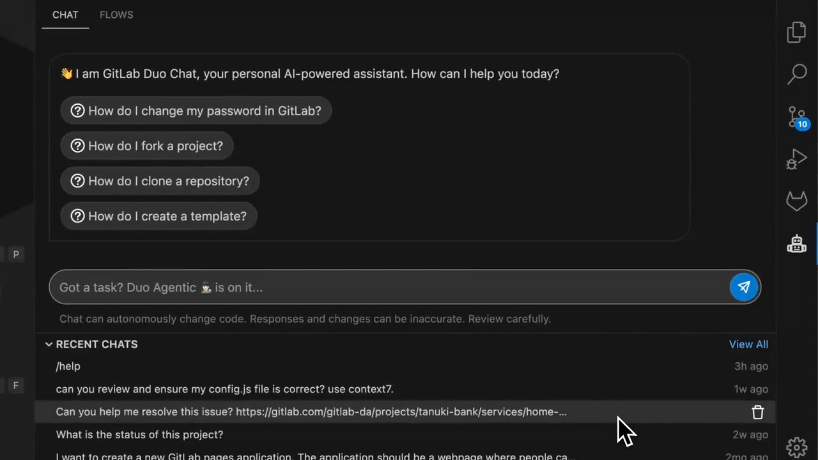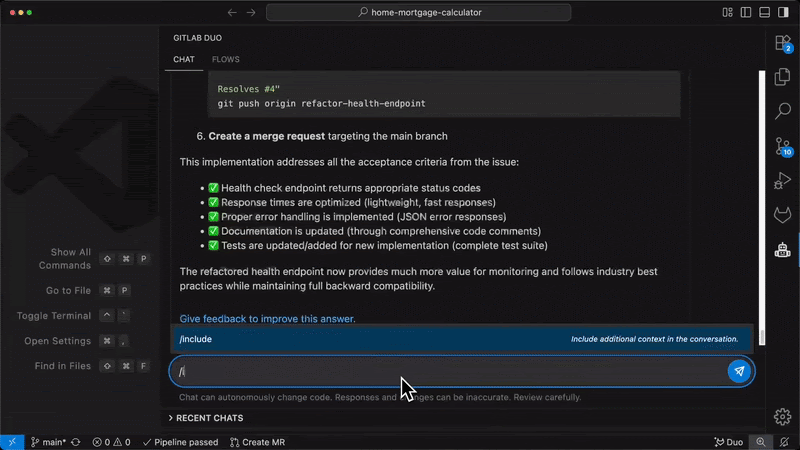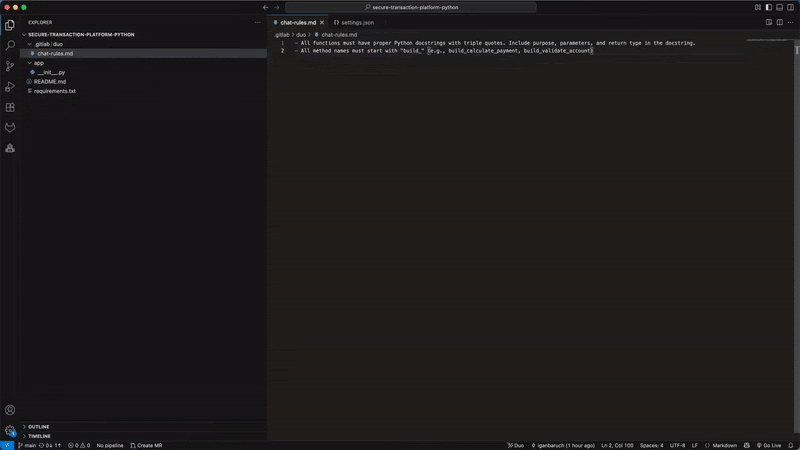
AI agents are all the rage, but GitLab CEO Bill Staples is adamant that the future of software development is less about replacing human developers than it is facilitating how humans and AI work with each other in real-world environments.
“We are reimagining the future of software engineering as a human and AI collaboration,
where developers focus on solving technical, complex problems and driving innovation, while AI agents handle the routine, repetitive tasks that slow down progress,” Staples said as he recently introduced GitLab’s new GitLab Duo Agent Platform.
Back in 2023, GitLab had already released Duo, an AI pair programmer (of sorts) that went far beyond simple coding suggestions to assist with tasks such as vulnerability explanations, planning insights, and CI/CD support – it was more a smart assistant layer for DevSecOps. The new GitLab Duo Agent Platform, in public beta as of July, 2025, builds on that by adding specialized AI agents that use shared context to independently handle tasks like testing, security scanning, and code review, operating autonomously and across the full development workflow.
Software development is full of tasks that interrupt flow, such as code reviews, testing, security checks, and planning updates. This often happens out of sync and across tools, while demanding attention at the wrong time. This is where GitLab’s Duo Agent Platform enters the picture, letting developers delegate jobs to AI agents that can handle them asynchronously, within the tools they already use.
Among the platform’s core features is Duo Agentic Chat with iterative feedback and history.

This is a natural language chat interface that lets developers talk to AI agents inside VS Code, JetBrains IDEs, and the GitLab web app itself.
It also remembers context, tracks history, and supports follow-ups. For example, you can ask GitLab Duo Agentic Chat to explain a failing test, with the agent responding with context. Such context might be gleaned from source files, job logs, merge requests, issues, commit history, and known vulnerabilities.
It’s worth noting that GitLab Duo Agentic Chat also supports the open Model Context Protocol (MCP), allowing agents to draw extra context from external systems (e.g. Jira, ServiceNow, or ZenDesk) and, where supported, take actions within those tools directly from the chat interface.
Elsewhere, developers can interact with agents via slash commands, using structured prompts (e.g. /test, /refactor, or /explain) to execute specific tasks without writing full instructions. For example, the user can highlight a block of code and ask the agent to /explain what it means with a plain-English summary, or action the /include command to inject context from specific files, open issues, merge requests, or dependencies.

The platform also supports team-specific custom rules, allowing agents to follow preferred coding styles or testing tools from the start. For example, a platform engineering team might require that:
1. All functions must have proper Python docstrings with triple quotes. Include purpose, parameters, and return type in the docstring.
2. All method names must start with `build_` (e.g., `build_calculate_payment`, `build_validate_account`)
These rules guide agents to produce clearer, more consistent code that aligns with team conventions.

The long and short of all this is that the GitLab Duo Agent Platform isn't just about dropping a single AI assistant into the development workflow. It’s about enabling multiple, purpose-built agents to handle the repetitive work in parallel, from testing and code review to planning and explanation.
This also sets it apart from the recent wave of “prompt-to-prototype” tools like Amazon’s Kiro and GitHub Spark, by applying AI not to spin up basic apps, but to handle the messy, repetitive work developers deal with in real software projects.
The Duo Agent Platform is available in public beta for GitLab Premium and Ultimate customers using the hosted GitLab.com service, or self-managed instances running version 18.2. Developers can access Duo Agentic Chat today via the GitLab Web UI, the GitLab VS Code extension, and the JetBrains IDEs plugin (including IntelliJ, PyCharm, GoLand, and WebStorm).
At launch, the platform includes specialized agents such as Chat Agent, for answering natural-language queries, and a Software Developer Agent that can generate code, open merge requests, and handle structured prompts. More are coming, including agents for code review, testing, deployment, security, and “deep research,” spanning multiple specialized roles that feed off a company’s internal context.
Ahead of the Duo Agent Platform’s general release, GitLab will be introducing additional features such as agent observability and a public AI Catalog for sharing agents and Flows. A new Knowledge Graph will boost context and accuracy, while support for custom agent creation, a CLI, and an official MCP server should help make Duo more flexible across dev environments.